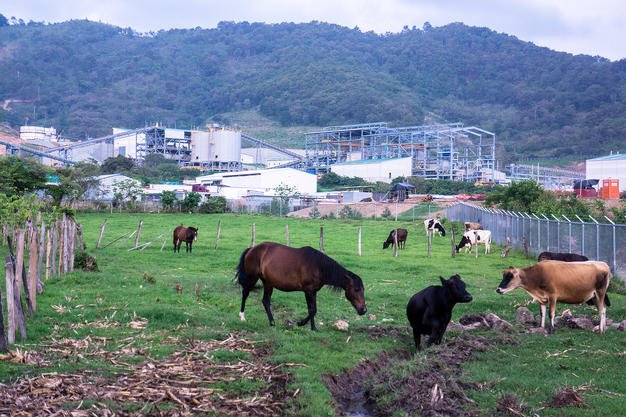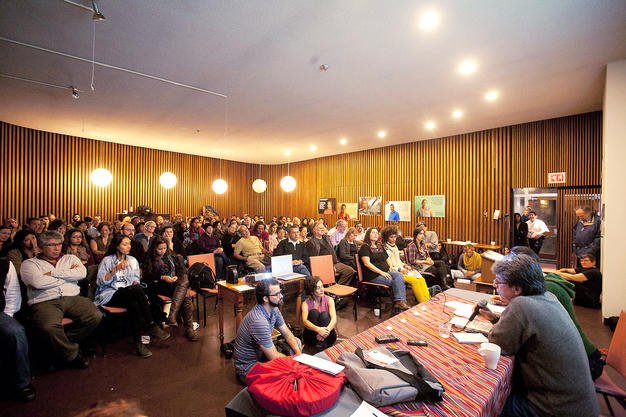
A Supreme Court of British Columbia judge has thrown out a lawsuit brought by seven Guatemalan farmers against Canadian mining firm Tahoe Resources over a 2013 shooting incident involving protesters and security forces at the company’s Escobal mine.
The suit was the first filed against a Canadian mining company in BC concerning violence in another country. The plaintiffs had argued that their case should be heard in Canada because they had no faith that their country’s legal system – two decades removed from the corruption and genocide of a 37-year civil war – would hold the company accountable. More recently, three lawsuits against HudBay Minerals Inc. for alleged abuses in Guatemala moved toward trial in Toronto. The judge in those cases ruled that a Canadian parent company may be held responsible for its own negligence in failing to prevent abuses by its security personnel.
However, Laura Gerow, the judge in the BC case, sided with Tahoe lawyers who argued it would be more cost-effective for the plaintiffs to sue Tahoe in Guatemala, where criminal proceedings against the company’s former head of security related to the incident are currently before the courts. She made her ruling under the legal doctrine of forum non conveniens, a discretionary power that according to the Canadian Centre for International Justice (CCIJ), which is part of the plaintiffs’ legal team for the civil case, has shielded Canadian companies, particularly in the extractive sector, from judicial scrutiny of their overseas operations.
CCIJ acting executive director Matt Eisenbrandt says the Canadian court had the jurisdiction to take on the case. Tahoe, which is headquartered in Reno, Nevada, is incorporated in BC, has an office there, conducts its annual meetings in Vancouver and is regulated by the BC Securities Commission.
Eisenbrandt also notes that Tahoe adopted a social responsibility policy that the suit states includes “voluntary principles on security and human rights… to ensure that any private security personnel engaged by Tahoe observe policies regarding ethical conduct and human rights… and exercise restraint and caution in a manner consistent with applicable international guidelines regarding the local use of force.”
Tahoe’s Escobal mine is the third- largest silver mine on the planet. The company planned to process an average 3,500 tonnes of ore per day and extract about 20 million ounces of silver per year. The company is also exploring for gold, lead and zinc in the area.
According to court documents, a number of protests and incidents, some violent, occurred over local community opposition to the mine, including the deaths in September 2012 of two security personnel who Tahoe says were “ambushed… by armed individuals.”
Several more protests occurred shortly after a licence for Tahoe to begin operations at the mine was issued in early April 2013. On April 27, a couple of dozen locals from nearby San Rafael Las Flores arrived outside the front gates of the mine, some of them carrying machetes, others sticks. A few of them sat on the public dirt road outside the mine operations to hold up cars going in when security personnel in riot gear emerged from the front gates and, unprovoked, according to the plantiffs’ suit, opened fire on the protesters with shotguns, pepper spray, buckshot and rubber bullets.
A security camera outside the mine shows protesters, some of whom were severely injured, continuing to be attacked even as they retreated. Tahoe’s Guatemala security manager, Alberto Rotondo, an ex-military officer from Peru, was charged with assault, aggravated assault and obstruction of justice three days after the incident.
The lawsuit alleges the shooting “was intentional” and that Rotondo viewed his mandate as “preventing the establishment of a long-standing community protest.”
Two weeks before the shooting incident, Guatemala’s public prosecutor ordered telephone intercepts of Tahoe’s operations over concerns about earlier violence at the mine site. In those intercepts, made public at a hearing in May 2013, Rotondo is openly hostile to protesters, whom he characterized as “faggots” and “sons of bitches.” Speaking with one of the guards under his command, Rotondo continues: “They say that one has a bullet wound in the face and… if it exploded in their face, it’s with bullets that they learn.”
Rotondo was placed under house arrest pending a trial expected to get under way next month, but he reportedly escaped custody on December 1.
In a public statement posted on Tahoe’s website a few days after the April 27 incident, CEO Kevin McArthur says that while many of the protests outside the mine “have been peaceful and respectful, violence from outside influences has escalated in the past weeks since we received our operating permit.
“Our investigation has shown that only non-lethal measures were taken by our security,” he says in the statement. “We regret any injuries caused by rubber bullets, but we take the protection of our employees and the mine seriously.”
The statement also refers to “outsiders being bused into the area to protest and cause public disturbances” and “reports that 25 police officers were captured and disarmed in Jalapa province by an angry mob” in an incident unrelated to the Escobal mine.
Ira Gostin, vice-president, investor relations and communications for Tahoe Resources, declined requests for comment, citing ongoing criminal proceedings related to the case in Guatemala.
Jennifer Moore, Latin America program coordinator at Mining Watch Canada, says Tahoe “is giving an incomplete picture of the peaceful resistance to the mine. It continues to impose an unwanted mining project in the area. It is a very troubling situation.”
Almost from the moment Tahoe acquired the mine from Goldcorp in 2010, the company has tried to silence local opposition, says Luis Solano, author of the book Oil, Mining And Power In Guatemala. He took part in a panel discussion in Toronto on November 11 called Under Siege: Criminalization And Canada’s Resource Wars, sponsored by Mining Injustice Solidarity Network.
Solano’s six-month investigation of the Tahoe project, which was commissioned by the International Platform Against Impunity in Central America and MiningWatch Canada, uncovered security plans that allegedly included detention of mine opponents for days and months at a time without charges “with the purpose of demoralizing and demobilizing anti-mining protests.”
He says Tahoe hired U.S. security and defence contractor International Security & Defense Management – which boasts experience with corporations working in war zones like Iraq and Afghanistan – “to assess its security needs and requirements during the construction phase of the Escobal project.” His findings were presented recently to the UN Forum on Business and Human Rights in Geneva.
Toronto Liberal MP John McKay appeared on BNN recently to speak on the regulation of Canadian mining companies abroad. McKay authored Bill C-300, the Corporate Accountability Of Mining, Oil Or Gas Corporations In Developing Countries Act, in 2009, which sought to ensure that Canadian extractive companies operating in developing countries comply with internationally agreed-upon human rights and environmental standards. It lost by just five votes. Another version of the bill tabled by McKay in 2013 also failed to pass.
McKay says he still get letters and calls “to speak on these issues more than five years later.
“I believe there is an appetite with the Canadian public for this kind of legislation,” he says. “However, [a push for legislation] is not going to come from the government, but from public pressure.”
news@nowtoronto.com | @nowtoronto















